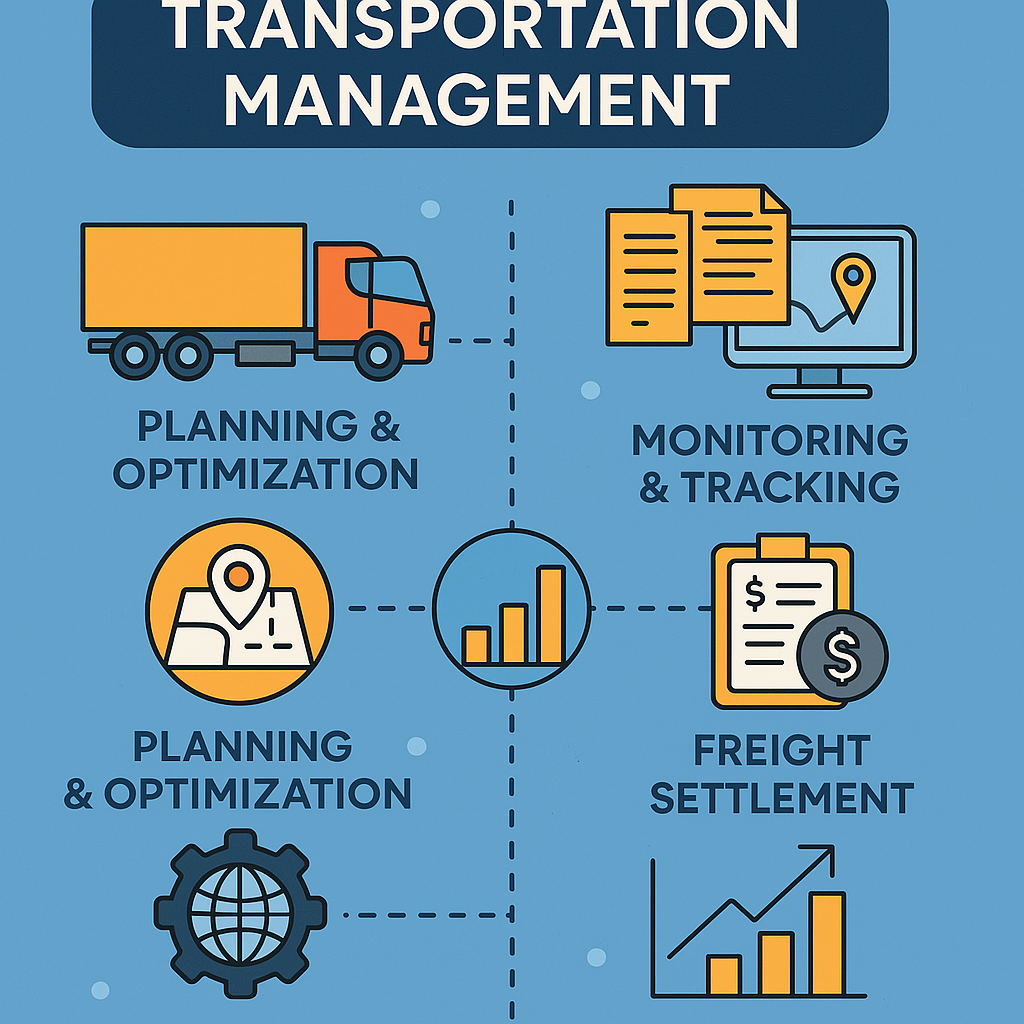Transportation management is the strategic planning, execution, and optimization of the movement of goods across various modes of transport—such as road, rail, air, and sea. It plays a pivotal role in supply chain operations, aiming to enhance efficiency, reduce costs, and ensure timely deliveries.
🚛 What Is a Transportation Management System (TMS)?
A Transportation Management System (TMS) is a software solution designed to streamline the logistics involved in transporting goods. It assists businesses in planning, executing, and optimizing the physical movement of products, ensuring compliance and proper documentation throughout the process.
🔍 Core Functions of a TMS
-
Planning & Optimization: Determines the most efficient transport routes and modes based on factors like cost, delivery time, and service quality.
-
Execution: Manages carrier selection, dispatching, and shipment tracking.
-
Monitoring & Tracking: Provides real-time visibility into shipments, allowing for proactive issue resolution.
-
Freight Settlement: Automates billing, auditing, and payment processes to ensure accuracy and efficiency.
-
Analytics & Reporting: Generates insights through key performance indicators (KPIs) to drive continuous improvement.
🌐 Integration with Supply Chain Management
TMS solutions often integrate with other systems like Warehouse Management Systems (WMS) and Enterprise Resource Planning (ERP) platforms. This integration facilitates seamless data flow across the supply chain, enhancing coordination and decision-making.
📈 Benefits of Implementing a TMS
-
Cost Reduction: Optimizes routes and consolidates shipments to lower transportation expenses.
-
Improved Delivery Performance: Enhances on-time delivery rates through better planning and execution.
-
Enhanced Visibility: Provides real-time tracking and status updates for shipments.
-
Compliance Management: Ensures adherence to regulations and proper documentation.
-
Scalability: Adapts to changing business needs and volumes.
🆕 Recent Developments in Transportation Management
-
Automation Initiatives: Japan is developing an automated cargo transport corridor, known as the "conveyor belt road," between Tokyo and Osaka to address driver shortages and reduce emissions.
-
Industry Consolidation: Danish company DSV has agreed to acquire Deutsche Bahn's logistics unit, Schenker, for €14.3 billion, positioning DSV as the world's largest logistics provider.
-
Leadership Changes: AFS Logistics has promoted its head of transportation management, Andy Dyer, to CEO, indicating a strategic focus on transportation services.
For businesses in Chennai and across India, adopting a robust TMS can significantly enhance logistics operations, ensuring efficiency and competitiveness in the dynamic transportation landscape.

 SkillClick
SkillClick
